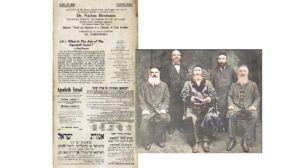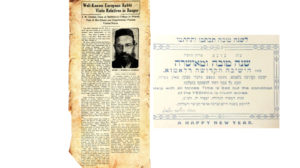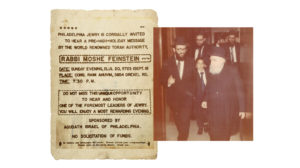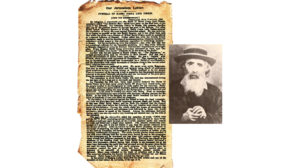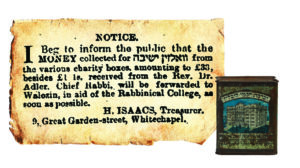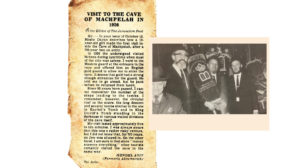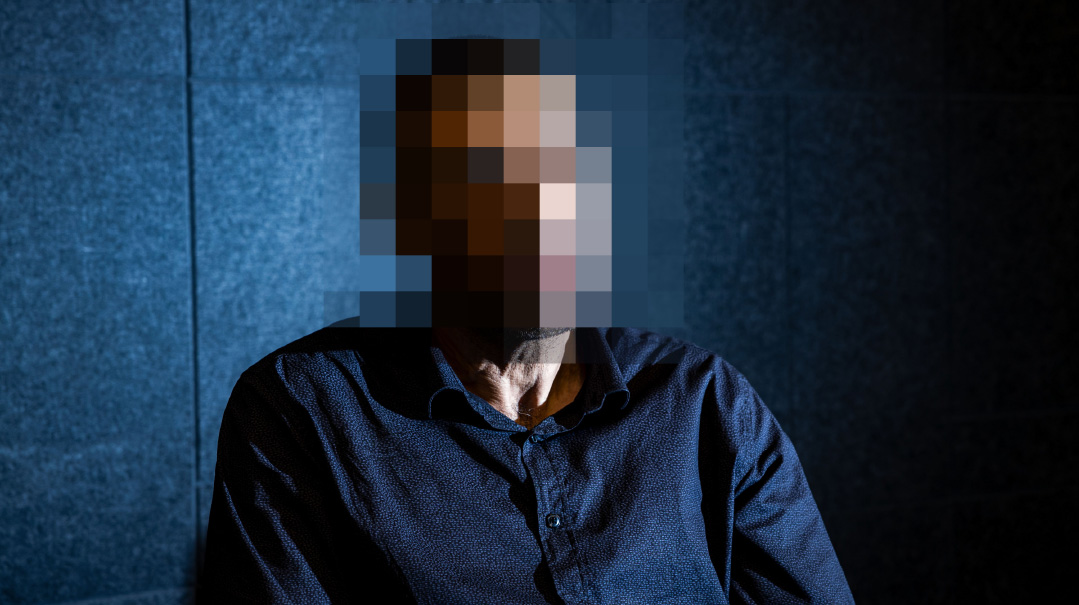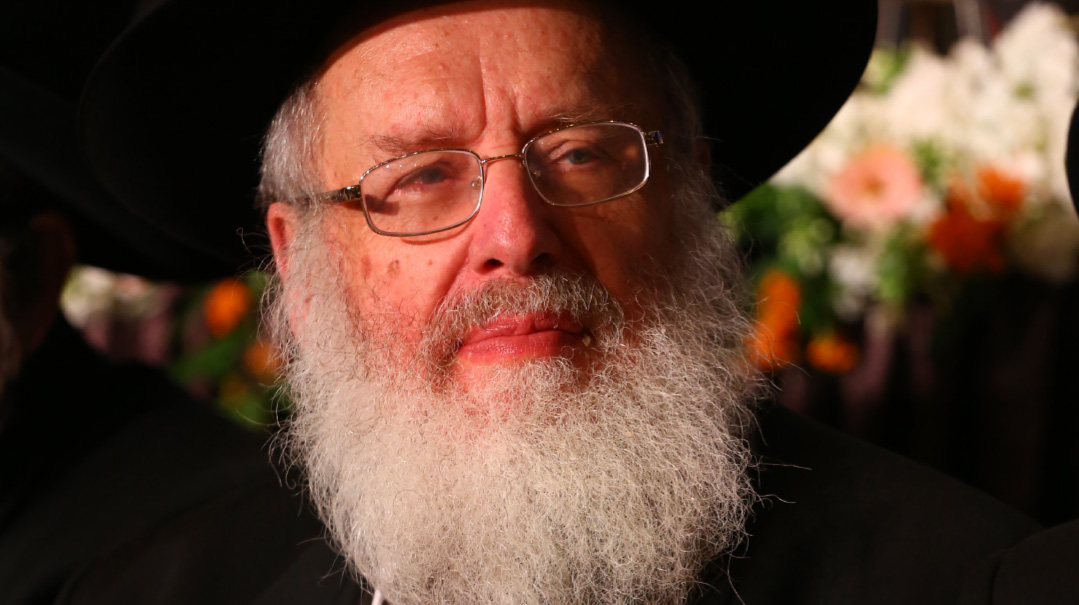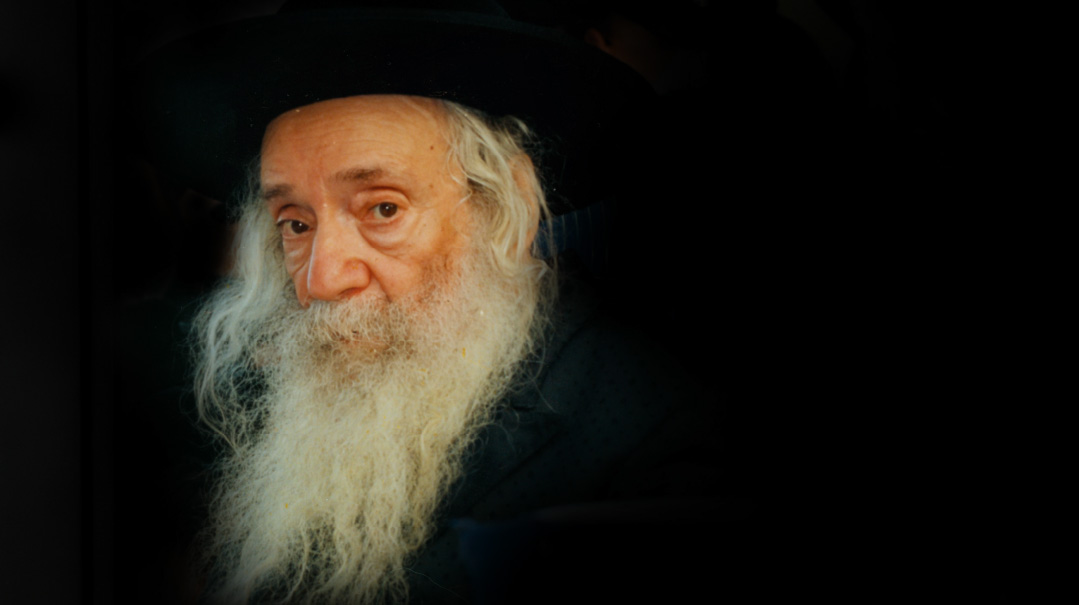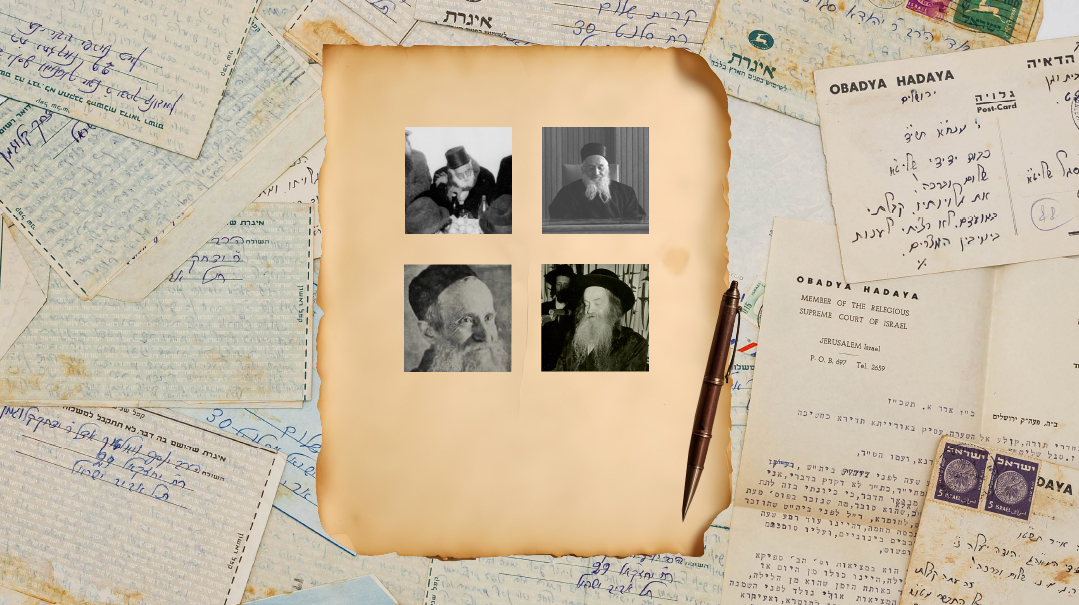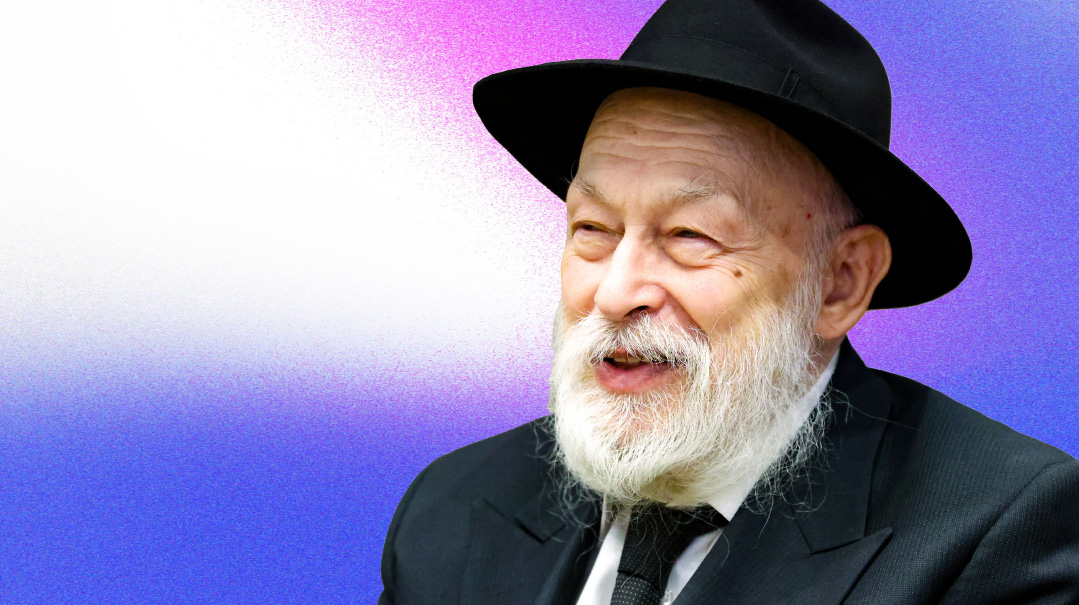Standing Up for History

Twenty years later, Professor Deborah Lipstadt relives the trial that rocked the world
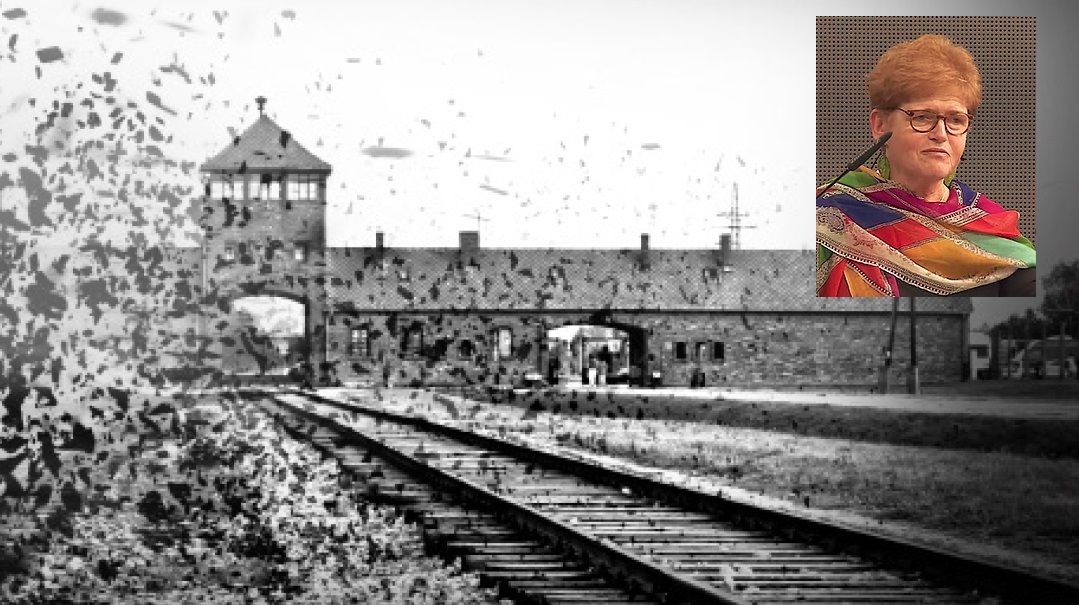
Twenty years ago, this Holocaust scholar was forced to defend her scholarship in court.
At stake was the veracity of the Holocaust itself
The nondescript letter that landed on Deborah Lipstadt’s desk on that fall morning in 1995 gave no indication it had the power to upend her life. A professor of modern Jewish and Holocaust studies at Emory University in Atlanta, Lipstadt had stopped in her office that morning before a meeting with a graduate student. The letter was from Penguin, the British publisher of her book Denying the Holocaust: The Growing Assault on Truth and Memory. In that book, she argued that Holocaust denial was no longer a fringe movement, but was becoming a serious threat.
Curious, Lipstadt opened the envelope, read a few lines, and then — to the astonishment of her secretary — began to laugh.
“This is really nuts,” she exclaimed.
David Irving, an author and well-known Holocaust denier, was threatening a libel suit over her claim that he denied the Holocaust. Considering that Irving had openly acknowledged his Holocaust denial, and that she had meticulously researched everything she had written about that subject, Lipstadt instantly dismissed the threat as “nothing more than sound and fury.” As the next tumultuous five years would show, however, she was seriously wrong.
Distorted History
Irving brought his libel suit in the United Kingdom, where, unlike the United States, the onus is on the defendant. In other words, Lipstadt would have to prove that what she had written about Irving was true.
Early on, some members of the British Jewish community advised her that she could settle out of court, but she refused. At that point in her career, Lipstadt, who grew up in a Modern Orthodox home in Queens, had been a Holocaust scholar for over 20 years and was a member of the US Holocaust Memorial Museum Council. She was determined not to allow Irving to bully her, or to retreat even an inch on the historical truth of the Holocaust.
In short order, a cadre of top-notch professionals and Holocaust experts rallied to her cause, including Anthony Julius, a prominent London-based Jewish attorney who counted Princess Diana among his clients, and Professor Robert Jan van Pelt, a top Auschwitz expert.
The best defense is a good offense, Lipstadt’s team believed. So instead of attempting to prove the Holocaust had indeed happened, they focused on proving that Irving had falsified claims about the Holocaust in his works, and that he did so out of anti-Semitic motives.
One of Irving’s more egregious claims, in his book Hitler’s War, was that the German dictator tried to end the mass murder of Jews. Another was that most Jews died of “epidemics” during the war, and were not murdered. For four years, the team researched every single footnote in Irving’s works and sourced them back to the original documents. That research unearthed a trove of clearly falsified information.
One example: The word “feldöfen” is used in important German documents in connection with the concentration camps. Irving translated feldöfen as “field kitchens.” But the real translation is “field ovens” — whose purpose was to incinerate corpses.
On April 11, 2000, after four years of strategic planning, marshalling evidence — including a trip to Auschwitz — and ten weeks of the actual trial itself, Judge Charles Gray read his judgment to a packed courtroom.
If you are imagining a dramatic courtroom scene, where Gray delivers a scathing final verdict against Irving, the reality was more prosaic. The full verdict, in fact, was 355 pages — and written in tortuous legalese. Instead of writing, for instance, that “Irving consorts with neo-Nazis,” Gray wrote: “I pointed out in paragraph 13.139 above that there may be circumstances extraneous to Irving’s practice of his profession as an historian from which it may be legitimate to draw inferences as to whether his misrepresentation of the historical evidence has been deliberate.” The closest Judge Gray comes to a clear-cut indictment, in one place, is: “Irving is an anti-Semite and a racist,” and, later on, “[He] manipulate[s] the historical record in order to make it conform with his political beliefs.” But the British media pulled no punches when it came to their elucidation of the verdict: The London-based Times declared that “history has had its day in court and scored a crushing victory.”
But What Impact?
Since the trial that made her famous 20 years ago (Lipstadt was portrayed by actress Rachel Weisz in a 2016 film, Denial) she has written four more books — History on Trial: My Day in Court with a Holocaust Denier (2005); The Eichmann Trial (2011); Holocaust: An American Understanding (2016); and Antisemitism: Here and Now (2019). Since it’s clear that anti-Semitism is on the rise once again, we wanted to know how she thought her trial 20 years ago had changed the landscape in which anti-Semitism operates, if at all.
The news on Jew-hatred is sobering. A recent annual survey from the Kantor Center at Tel Aviv University reported that attacks on Jews worldwide had increased 18 percent in 2019, including physical assaults and attacks on cemeteries and synagogues. The Community Security Trust, which tracks anti-Semitism in the United Kingdom, reported 158 assaults on Jews in 2019, and an Anti-Defamation League survey released in April found that 63 percent of American Jews feel less safe than a decade ago.
Given all this newfound, virulent Jew-hatred, I asked Lipstadt if she felt there had been any lasting impact of the trial. After all, not only have Holocaust deniers not been silenced, more and more people are attacking Jews openly. In England, an entire political party, Labour, has been tarred by unapologetic anti-Semitism in its ranks.
“Obviously,” says Lipstadt, “Holocaust denial has not gone away, anti-Semitism has not gone away. Today we see it on the right, on the political left, and among Islamist extremists…. On the right it’s more violent, on the left it’s more structural, it’s more political.”
But why this sudden resurgence of anti-Semitism? What societal changes have prompted so many violent attacks on Jews?
“I think the political-moral guardrails that exist in society have come down,” Lipstadt says. “I don’t care what you think about Donald Trump… he may hate anti-Semitism, he may decry anti-Semitism, but he’s made the kind of language that is rife for anti-Semitism much more permissible.”
Lipstadt colleague Dr. Debórah Dwork, a founding director of the Strassler Center for Holocaust and Genocide Studies at Clark University, believes when society is strong — is liberally strong — there is no place in the public sphere for people who harbor those hatreds to express it.
“So they may have it in their hearts but they are not empowered to articulate it in the public sphere or to act on it,” she says. “I believe that this coarsening of the public discourse has emboldened them.”
Lipstadt and Dwork don’t ignore the political left’s hate, either. Lipstadt devotes half a chapter in her latest book to Jeremy Corbyn, leader of the Labour Party in England, who “has emboldened and enabled anti-Semites” through his vociferous and unceasing anti-Israel rhetoric.
Yet despite the similarities, there are significant differences between left- and right-wing anti-Semitism. The BDS movement, as well as anti-Zionist attacks on Jews on college campuses, are not as violent as the shootings in Poway and Pittsburgh. However, it is true that they occur with greater frequency, and are tolerated more readily. Should the shootings worry us more than BDS? Or perhaps it should be the other way around?
“I think to get into that conversation is to get into a stupid merry-go-round that becomes a political fight,” Lipstadt says. “If you’re really serious about it, then you say both are dangerous. Anybody who says, ‘No, this is more dangerous,’ I say, ‘You’re just engaged in weaponizing anti-Semitism, you’re turning it into a political weapon.’ If you can’t see the danger on both sides, then there’s no room for discussion.”
For Lipstadt, in fact, one of the greatest problems today is that many refuse to see Jew-hatred on “their” side of the political spectrum. “If you’re on the right, you see it perfectly on the left, and what you’re seeing is true,” she explains. “And if you’re on the left, you see it perfectly on the right, and what you’re seeing is true. But you don’t see it right next to you.”
Defending History
Though the libel trial did not succeed in ending anti-Semitic discourse, it did discredit those who claimed that the numbers and facts had been exaggerated, Lipstadt says.
“[Now] nobody serious takes them seriously,” she says. “Anti-Semites might take them seriously, but no serious scholar does. So, in other words it destroyed Irving’s reputation and it destroyed any legitimacy to Holocaust denial. Did it destroy Holocaust denial? No, of course not, because it didn’t destroy anti-Semitism. You can’t destroy anti-Semitism. That’s almost impossible, to destroy anti-Semitism. It’s called the oldest hatred for a reason.”
The trial “put a kibosh” on hard-core denial, but not on soft-core denial, she says. What’s soft-core denial? For example, the complaint that people are “tired” of hearing about the Holocaust and that the Israeli army is a reincarnation of the Nazi Wehrmacht.
“That’s what I call soft-core denial,” she says. “It doesn’t deny the facts but it denies the importance — the importance not just to Jews, but the importance to the world in general.”
What was unique about the trial, she says with her characteristic precision, was that “it was the first time ever — and it hasn’t happened since then — that a non-perpetrator of the Holocaust was on trial.” Namely, Lipstadt herself.
In the many Holocaust-related trials since World War II, it’s always been about “the perpetrators, and facilitators, and deniers” — i.e., the Nazis and their collaborators. “This was the first time there was a switch,” where a Holocaust historian and spokesperson for its victims had to prove that her writings about the Holocaust were true.
But how did Irving even have a leg to stand on in such a trial? Given the reams of evidence available, how could he — and other deniers — even begin to make a case against the colossal reality of the Holocaust?
Lipstadt acknowledges the conundrum with one of her trademark lists: “For deniers to be right,” she sums up, “who has to be wrong? A) the thousands of documents, B) the survivors, C) the people in the Polish towns and Russian and Soviet villages who saw the people being taken out to be shot or brought into camps, D) the thousands of historians who all had to be duped or in on the hoax, and most of all the perpetrators who never said it didn’t happen… So there’s no narrative, there’s no evidence, there’s no proof.”
So what exactly do Holocaust deniers hope to accomplish? According to Lipstadt, the answer is very simple. Deniers are anti-Semites who want to undermine support for the Jews.
“It’s not a matter of them not having the right information, and if we show this document or whatever, they’re just going to dismiss it. These are anti-Semites who hate that Jews get sympathy for the Holocaust, who are determined to portray Jews as evil and as dishonest, and as duping the world because that’s what Jews do. And they dupe the world on this to get money and to get a Jewish state, even though the history of the Jewish state is much more complicated than that. So it is a form of anti-Semitism.”
Lipstadt has, in fact, shifted from her typical focus on publishing Holocaust-related books to the more general theme of anti-Semitism with the publication of her latest book, Antisemitism: Here and Now, in 2019. It was prompted by the troubling rise of anti-Semitism over the last few years, though, as Lipstadt presciently wrote, “given the unending saga that is anti-Semitism, I feel comfortable predicting that by the time this book appears there will have been new examples of anti-Semitism that should have been part of the narrative.” Indeed, the book was written before the tragedies in Pittsburgh, Poway, and Jersey City, to name three attacks that took the lives of 16 people.
Dr. Lipstadt says her libel trial changed how ordinary people view Holocaust denial. Professor Dwork, though, goes even further: The trial changed even how anti-Semites relate to Holocaust denial, in two ways. First, they’ve basically abandoned Holocaust denial as a channel for their virulent beliefs: “The deniers don’t spend so much time on the subject of Auschwitz now… I think it became too high a hill to climb for deniers. It was just too complicated, it was too difficult to navigate, negotiate. They’ve lost and lost big….”
However, the trial also emboldened these anti-Semites; deprived of their mask of Holocaust denial, they’ve come out into the open rather than retreat. “Twenty years ago, anti-Semitism hid behind denial of the Holocaust. Now it’s just out there.”
The Oldest Hatred
Lipstadt grew up in Far Rockaway, Queens, and her family attended Shaarey Tefila Congregation, led by Rabbi Emanuel Rackman. She received a bachelor’s degree in American history from City College in New York and earned her doctorate in history from Brandeis University in 1976.
She says her interest in the Holocaust first germinated when she was a college student in Israel during the Six Day War. Dr. Lipstadt recalls standing on Har Hazeisim, as families began to search for the gravestones of their loved ones. At that time, buoyed by Israel’s miraculous victory, survivors began to feel more open about telling their stories. Dr. Lipstadt’s eyes, in turn, were opened to what she calls “the deep imprint of the Holocaust and Israel on the psyche of the Jewish People.”
Today, one of the most frightening aspects of anti-Semitism is the “dehumanization” of Jews, Lipstadt says. Last year, the New York Times international edition featured a cartoon of Prime Minister Binyamin Netanyahu and President Trump that depicted a blind and kippah-wearing Donald Trump walking a dog with Netanyahu’s face. One letter to the editor, subsequently published by the Times, stated, “Under the guise of political commentary, the caricature blatantly trafficked in age-old anti-Semitic tropes that have contributed to violence against Jews throughout history.”
And just this past February, for a second year, a parade in the Belgian city of Aalst featured caricatures of Jews that many found reminiscent of Nazi-era imagery: men in costume as well as floats depicted Orthodox Jews with large hooked noses and insect features.
The reaction was fast and furious. Israel’s foreign minister Yisrael Katz wrote that “Belgium as a Western democracy should be ashamed to allow such a vitriolic anti-Semitic display,” and called on authorities to ban the parade.
Dr. Dwork drew a powerful analogy: “Just as at universities, students cannot put up whatever announcements they want on the public bulletin boards, there are certain standards that the community ascribes to which reflect the sensitivities and the norms of society.”
But the mayor of Aalst, Christoph D’Haese, defended the floats and costumes: “I did not see an anti-Semitic or racist parade. To the contrary, I saw a high mass of free speech and creativity.”
Ironically, Lipstadt did not come out clearly in favor of banning the parade. “It dehumanizes Jews,” she concedes, “and it creates a terrible atmosphere and it sort of makes it okay to talk about Jews as rats, to talk about Jews as vermin, to talk about Jews in all these horrible ways. It is dehumanization of the first kind, and it is very dangerous. But should we ban the parade? Not necessarily.
“There’s a difference between speech and incitement,” Lipstadt acknowledges.
If it pushes people to go and harm others, then it falls under incitement, and should not be protected by law. But in most situations, without clear incitement, we should not attempt to shut down speech that makes us uncomfortable.
“The minute you start monitoring or limiting freedom of speech, it’s gonna turn around to bite you,” she asserts. “What are you going to do, get people thrown in jail because they publish this cartoon? Lose the right to publish? You want your stuff to go through a censor? Welcome to Castro, to Cuba. Welcome to the Soviet Union, welcome to Nazi Germany. Freedom of speech means you have to live with things that make you uncomfortable.”
The best way to fight public displays that make us uncomfortable, then, according to Lipstadt, is to use our freedom of speech to protest them, because “that’s what freedom of speech is all about.”
Neither Lipstadt nor Dwork offer specific solutions to the current rise of anti-Semitism. In fact, Lipstadt mentions, at a recent seminar she gave on anti-Semitism, “A very well-meaning man, the CEO of a Fortune-500 company said to me, ‘Jews are so smart, Jews are so accomplished, they’ve done such wonderful things — how is it that they haven’t solved the problem of anti-Semitism?’ ”
What Deniers Do
“They are besmirching the Jewish People,” says Dr. Debórah Dwork, founding director of the Strassler Center for Holocaust and Genocide Studies at Clark University. Deniers portray “the Jewish People to be liars, manipulators of the press… all the stereotypes.”
Dwork has collaborated on a number of books with Robert Jan van Pelt, a key witness at the Lipstadt libel trial.
Dwork claims, like Lipstadt, that denial stems from anti-Semitism, but she takes it a step further. Denial is not just a defensive reaction of anti-Semites to the Holocaust, but a perfect tool to “prove” all the anti-Semitic canards about Jews. If you claim that the Holocaust didn’t happen, then why does the whole world believe that it did? It must be that the Jews manipulated the press. And why did they do that? To enrich themselves, and strengthen the State of Israel. “All the anti-Semitic things that you can say about the Jews — all those can be applied if you deny the Holocaust.”
Dwork was personally slandered during the trial with the canard that Jews have used the Holocaust for financial gain. “At a certain point, David Irving claimed in court that I earned millions of dollars by saying that the Holocaust had occurred. So Robert Jan called me and said, ‘I think you better come to London straight away because you may be called as a witness.’ ”
Irving’s claim against Dwork, both in its style and its substance, provides a clear example of his method of operation. The following is a direct transcript from the trial (January 26, 2000):
Mr. Irving: You had a colleague working with on your book, did you not, Debórah Dwork?
Professor Van Pelt: Yes.
Mr. Irving: She is now a very famous professor, is she not, at the Clark University? She has a Chair of Holocaust studies?
Professor Van Pelt: Holocaust history.
Mr. Irving: Holocaust history. Without wanting to sound tasteless about it, it has become quite an industry, a very well-funded industry, has it not, this Holocaust-education business? She writes in her own papers that she has received $5 million a year for funding her Chair and enterprises?
Although Dwork acknowledges with a bit of humor that she wouldn’t mind earning millions of dollars, she clarifies Irving’s distortion: “What he confused was that I raised millions of dollars for scholarship to support the scholarly center I had founded at Clark.”
In other words, the money was invested to build up a library and to pay for student scholarships, not to line her own pocket.
Worldwide Ignorance
What do statistics show about Holocaust denial in the world today? The good news is that 96 percent of Americans polled in a recent survey by the Claims Conference agreed that the Holocaust happened, and 93 percent believed that the Holocaust should be taught to all students in school. But there seems to be a shocking lack of knowledge about the particulars. In the survey, released in 2018, 31 percent of survey respondents thought about two million Jews had died in the Holocaust, and 41 percent of those polled never heard of Auschwitz. The statistics were considerably worse for millennials. Most experts agree, however, that these disappointing figures emerge from a lack of knowledge, rather than ideology.
“The issue is not that people deny the Holocaust; the issue is just that it’s receding from memory,” Greg Schneider, the executive vice president of the Claims Conference, told the New York Times.
The situation in the Muslim world, though, is significantly different. There, the issue is active denial, rather than just lack of knowledge. In his book Trials of the Diaspora: a History of Anti-Semitism in England, Lipstadt’s attorney Anthony Julius devotes considerable attention to anti-Semitism in the British Muslim community. He cites a recent survey that found among British Muslims, only 22 percent of respondents agreed that the Holocaust happened “as history teaches,” and 23 percent never heard of it. Julius goes on to quote a government-sponsored report showing that some British teachers are even uncomfortable teaching about the Holocaust, “for fear of offending Muslim students whose ‘beliefs’ include Holocaust denial.”
(Originally featured in Mishpacha, Issue 813)
Oops! We could not locate your form.
